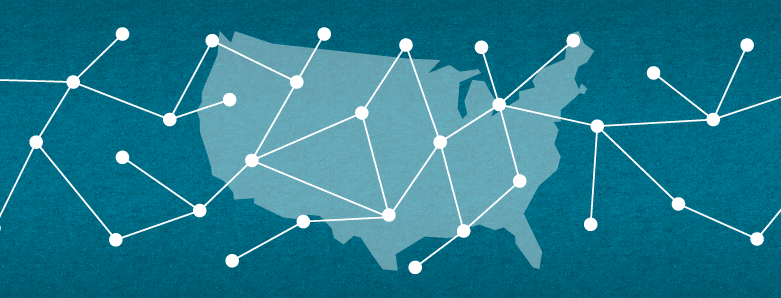
Report Shows How Big Bad Bills Bulldoze Broadband
Here’s a fun experiment:
Grab the next person you see and tell her you’re about to talk about tech policy (you know, to prepare her). If she hasn’t screamed, pulled out all of her hair or fled the room, tell her you’re about to take a voyage to strange lands where laws exist that make it harder for people to access the Internet.
You: Some laws were passed in faraway places like Colorado, North Carolina, Tennessee and Utah. These laws make it harder for people to get online. Plus they destroy competition, raise prices and hurt local economies.
Her: But why would elected officials pass laws that restrict our access to information?
You: Let me introduce you to a little thing called “corporate lobbying.”
If you need help explaining the weird workings of this world to your friend, try consulting The Empire Lobbies Back: How Big Cable Killed Competition in North Carolina, a new report from the Institute for Local Self-Reliance (ILSR) and Common Cause.
This study details how companies like AT&T, CenturyLink and Time Warner Cable banded together in 2011 to push through HB 129, a bill in the North Carolina legislature that made it just about impossible for communities to create their own broadband networks. (This became law after five North Carolina communities, including Wilson — whose success ILSR previously documented — built fast and affordable networks that challenged the dominance of incumbent cable and DSL companies.)
Residents across North Carolina need better and more affordable broadband service. Some rural residents lack access to any kind of high-speed Internet — leading some business owners to close their doors and making it hard for local kids to get a decent education.
But rather than extend their services to people who need them, companies like Time Warner Cable would rather torpedo community-driven initiatives that seek to fill the gaps.
According to report authors Christopher Mitchell and Todd O’Boyle, instead of investing in extending their networks, these companies spent hundreds of thousands of dollars lobbying the North Carolina state legislature, arguing that communities shouldn’t be able to make broadband decisions for themselves. Despite vocal protests from state residents, the strategy worked: In May 2011, then-Gov. Bev Perdue allowed HB 129 to pass into law.
The same exact story has played out in 18 other states across the country (check out this map from the ILSR for a full list of states with anti-municipal broadband laws). And in many cases, the bills were nearly identical — because they were ghost-written by the corporate-funded American Legislative Exchange Council (ALEC). ALEC is notorious for pushing — and often writing — conservative legislation on everything from gun ownership to health care to the environment.
As Mitchell and O’Boyle explain, the well-funded ALEC and its telecom friends are methodically removing any semblance of broadband competition around the country. Meanwhile, millions who need fast, affordable Internet service still lack access to fast, affordable Internet service.
Let’s get back to your friend, who will surely feel shocked by all this nonsense. When she asks why companies like CenturyLink are so hostile to communities and potential customers — and when she wonders why elected officials are so quick to help these corporations — you might shake your head in dismay along with her. Then you can quote Mitchell and O’Boyle’s conclusion:
It certainly makes sense for these companies to want to limit local authority to build next-generation networks. What remains puzzling is why any state legislature would want to limit the ability of a community to build a network to improve education outcomes, create new jobs and give both businesses and residents more choices for an essential service. This decision should be made by those who have to feel the consequences — for better and for worse.
You can also tell your friend that there’s a movement afoot to stop these anti-community broadband efforts from gaining any more traction. Find out more at savetheinternet.com/broadband.